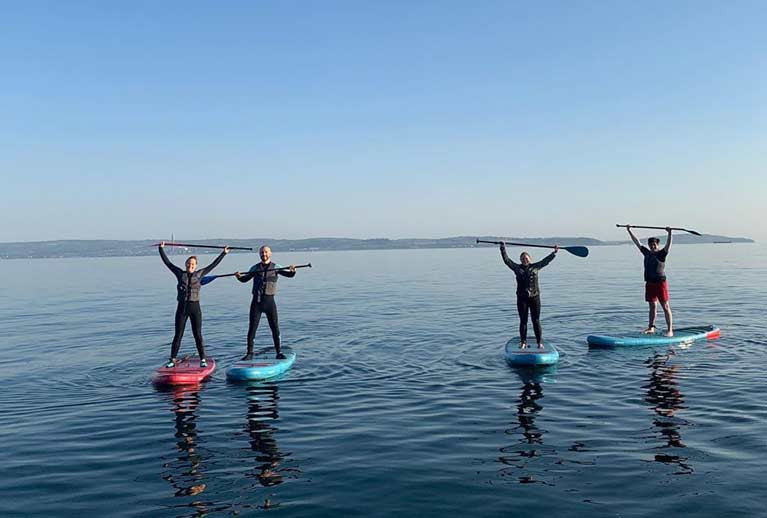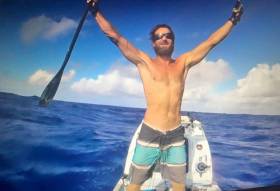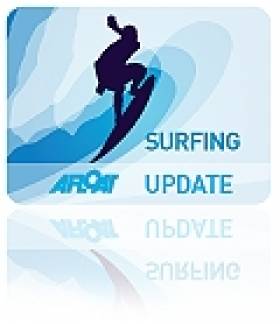Displaying items by tag: standup paddleboarding
Standup Paddleboarding is Back on Belfast Lough
Another water activity on the go again under Step 1 of the Northern Ireland Executive’s plan is Standup Paddleboarding. SuphubNI is a mobile venture based in Bangor on Belfast Lough run by Iain McCarthy and he is delighted to get afloat again after the lockdown.
At the moment activities cover Dawn Patrols, Ready to Ride lessons, five-week courses and private and family sessions. Iain says, “ As we move along the 5 Step plan we will be able to offer a wider range of activities and larger group sessions”.
All kit required is provided for every class and Iain has initiated a Covid Policy to ensure the operation is in line with guidance of the government and public health guidelines.
Suphubni works closely with Bangor Harbour and keeps in constant contact by handheld VHF marine radio. The recent kind weather has been ideal for this sport.
#SUP - South African adventurer Chris Bertish has become the first man to cross the Atlantic by stand-up paddleboard, as the Guardian reports.
The big wave surfer took 93 days to traverse the ocean from Agadir in Morocco to Antigua, where Ireland’s ocean rower Gavan Hennigan set his own transatlantic record in January.
That effort required Bertish, 42, to paddle some 43 miles a day on his custom 20ft expedition paddleboard designed by Phil Morrison, the naval architect also responsible for the latest National 18 design.
The Guardian has more on the story HERE.
Irish Six in Peru for SUP and Paddleboard Worlds
#SURFING - A six-strong Irish team is in Peru to compete in the inaugural World Stand-Up Paddle and Paddleboarding Championships, which commence today (19 February).
The surfers have travelled at their own expense to the Peruvian capital Lima to take part in the International Surfing Association-sanctioned event, where they will contest against paddleboarders from 19 other countries.
“It is the first of its kind and we wouldn’t want to miss out," team member Paul Byrne told TheScore.ie. "The fact that it has been recognised enough to hold an international competition means stand-up padding (SUP) is here to stay.”
Dubliner Byrne first got involved in SUP in Australia, and found on his return to Ireland that he and his friends didn't need to seek out the popular surf out west to keep up with the sport - the swell produced by ferries in Dublin Port is just what they needed (see video of Dave Owens above).
Byrne joins Owens, Finn Mullen, Ed O'Farrell, Keith Gorman and Jane Downes in South America for the World Championships, which run till 25 February.
“We been competing in Europe," he says, "but it is sure to be tough against surfers who are sponsored to do it for a living.”
































































